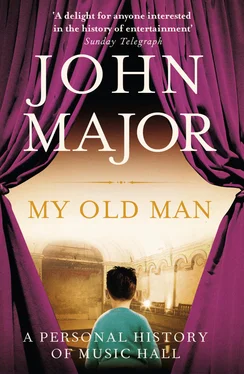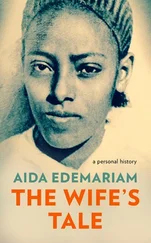The Cyder Cellars was in close proximity to the Coal Hole, where William Rhodes had appointed his brother John, a sometime poet, as manager. John Rhodes was a big man, with a fine presence, and under his guidance the Coal Hole flourished. A raconteur with an outgoing personality, he sat at the head of the singers’ table, conducted the evening’s frivolities, joined in the glees and sang solos in an excellent baritone voice. Apart from being the ideal concert chairman, he had a passion for silver plate, and boasted of his collection of silver tankards, goblets, flagons and loving cups that ‘the like could [not] be seen elsewhere in London’. Despite these pretensions, the Coal Hole became notorious for drunken rowdiness. Among the celebrities it attracted on a nightly basis was the actor Edmund Kean, a frequent patron and serial carouser.
In many ways, the Coal Hole was a mirror image of the Cyder Cellars. In addition to engaging the same performers, the tone was similarly low-brow. Joe Wells, a ‘dreadful old creature’, sang ‘very coarse and vulgar’ songs with great gusto; Charles Sloman improvised more spicily than elsewhere. A young singer, Joe Cave, introduced the banjo as accompaniment to ‘Ethiopian’ (Negro) songs in addition to his traditional fare of ballads and opera excerpts. Static near-nudes made their debut in the delphically entitled ‘ poses plastiques ’. And from the early 1850s the self-styled ‘Baron’ Renton Nicholson presented his infamous ‘Judge and Jury’ trials. Oddly, women were admitted for the poses , which were presented, rather unconvincingly, as classical art – but not the ‘trials’.
Nicholson, ‘a clever, versatile, wholly unprincipled fellow’, had a chequered career. He had owned a scurrilous gossip journal, the Town , before purchasing the Garrick’s Head tavern, where he instituted the ‘Judge and Jury Society’ which later translated to the Coal Hole. The entertainment was comprised of sketches, written by Nicholson, and usually parodying contemporary events. Nicholson, in full wig and gown as the Lord Chief Justice, heard cases argued by a ‘barrister’ and ‘witnesses’. The mock trials were witty, laced with innuendo, often vulgar and irresistible to those who recognised the victims.
At the height of the supper clubs’ fame in the 1840s, the entertainment at venues like the Coal Hole may have been bawdy, even filthy, but few were offended – and certainly not the writers, journalists and intellectuals who were their habitués. If offence was taken by sensitive members of the audience, their ire could swiftly be soothed by devilled kidneys, oysters, Welsh rarebit, cigars, brandy, stout and cider, all of the highest quality.
The Coal Hole attracted a wide cross-section of society. William Makepeace Thackeray, who had a lifelong passion for the theatre, was a frequent attendee, and offers his own recollections of the Coal Hole and the Cyder Cellars. In The Newcomes , John Rhodes, manager of the Coal Hole, is depicted as Hoskins, landlord of the ‘Cave of Harmony’, with, as an added clue, Charles Sloman as ‘little Nabob, the Improvisatore’. In Pendennis , Thackeray describes a bass singer named Hodgen who enjoyed success with a song entitled ‘The Body Snatcher’ – it is clearly W.G. Ross and ‘Sam Hall’ that is being depicted. Thackeray’s description of the ‘Back Kitchen’ where Hodgen performs may be taken as a reflection of the clientèle of the supper clubs: ‘Healthy county tradesmen and farmers … apprentices and assistants … rakish young medical students … young university bucks … handsome young guardsmen … florid bucks from the St. James Clubs … senators, English and Irish … even Members of the House of Peers’.
The song and supper clubs overlapped with the birth of purpose-built music halls which eventually forced them out of business. When William Rhodes died, his widow took over the Cyder Cellars, but it soon declined under her management. At the Coal Hole, John Rhodes was succeeded by his son, who ran it until his death in 1850, after which his widow, and later John Bruton, attempted to revive it, but its day was done. As audiences fell, the content became more lewd, and the authorities pounced: both the Cyder Cellars and the Coal Hole had their licences revoked in 1862.
Evans’ Late Joy’s lingered on, and Paddy Green was host to the Prince of Wales, later Edward VII, on a number of occasions – the first public nod to the supper clubs from a member of the Royal Family. One attraction for the Prince appeared to be a singer, Victor Liston, and his popular song ‘Shabby Genteel’, which highlighted a very British trait that still exists:
Too proud to beg, too honest to steal,
I know what it means to be wanting a meal,
My tatters and rage I try to conceal,
I’m one of the shabby genteel.
From the early 1860s, ladies were permitted to enter Evans’ and listen to the entertainment from specially-constructed boxes in the gallery, provided they had a male escort, gave their name and address (as a disincentive to undesirables) and remained hidden behind a screen; notwithstanding these impertinences, many women did attend. Mrs Louisa Caulfield was the first woman to sing there, around 1860, and included ‘Keemo Kino’, a minstrel song, in her repertoire. At that time such songs were enormously in vogue, but were not universally popular. The poet and lawyer Arthur Munby’s diary records supping at Evans’ in March 1860 amid ‘a hubbub of nigger howlings’. Later, Paddy Green – or his successor Mrs Barnes, it is not clear which – went even further than offering female singers, by admitting women to the floor of Evans’. As dancing was introduced, Evans’ became a market for vice and a meeting place for seedy London. In 1872 the law changed and Evans’ needed a licence to offer entertainment after 12.30 a.m. – which it did not obtain. This marked the end of the song and supper rooms.
Конец ознакомительного фрагмента.
Текст предоставлен ООО «ЛитРес».
Прочитайте эту книгу целиком, купив полную легальную версию на ЛитРес.
Безопасно оплатить книгу можно банковской картой Visa, MasterCard, Maestro, со счета мобильного телефона, с платежного терминала, в салоне МТС или Связной, через PayPal, WebMoney, Яндекс.Деньги, QIWI Кошелек, бонусными картами или другим удобным Вам способом.












